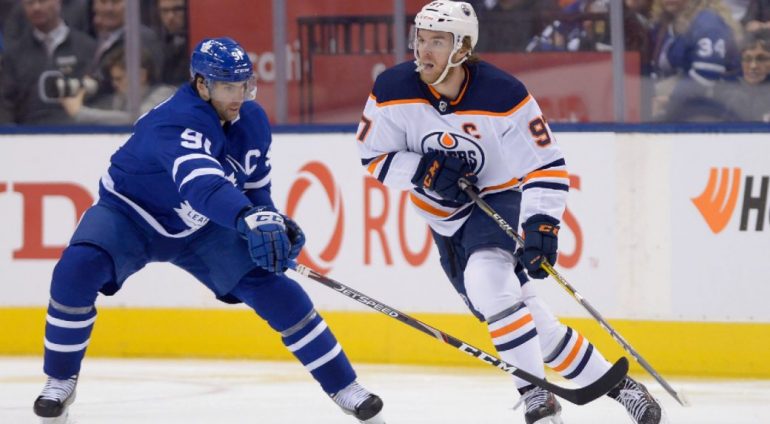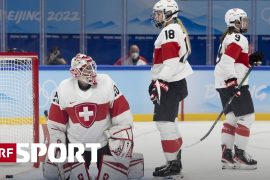Not since the days of the 21-team NHL has the path to the Stanley Cup Final been so clear for a Canadian team.
Whoever emerges from the Group of Seven under the proposed rules for a reimagined 2020-21 season would waltz straight into the Final Four.
Can you imagine the buzz?
Four of the Canucks, Flames, Oilers, Jets, Senators, Leafs and Canadiens would be promised a spot in the Stanley Cup tournament, setting the stage for three-all Canadian best-of-sevens and a guaranteed representative with games still to play while 27 other NHL teams are already at home.
Of course, this being an age defined by uncertainty and impermanence, there’s only one hitch.
And it’s a rather large one.
Even as the NHL and its players reached tentative agreement on the protocols and rules governing a radically reimagined season on Friday night, the health authorities in Canada had yet to endorse the plan.
In fact, a call was scheduled with the provinces on Saturday to continue those discussions. So far, they’ve not gone smoothly, which is why the NHL has been forced to at least entertain the idea of moving its seven Canadian teams to the U.S. for the season, as Sportsnet first reported this week.
But that is not a path anyone with a vested interest in these discussions truly wants to walk down.
The league is endeavouring to create an all-Canadian division that features 56 games per team played entirely among the Group of Seven. That would eliminate the need to cross the federal border and observe quarantines.
However, it must get five provinces to sign off on the protocols governing play and there’s been some resistance from government officials about having seven teams criss-cross the country for games. The NHL’s plan calls for players to be tested at least every second day — it could potentially be every day — while essentially creating little bubbles around each team with as little outside contact as possible.
Charter planes would be used for all travel and the health standards at road hotels and restaurants would be strictly monitored. Players would basically be confined to the hotel and rink, too. The league must do everything it can to assuage concerns about how it might be impacting the public health risk at a time when COVID-19 cases are surging.
Where this gets really interesting is the NHL is targeting a Jan. 3 start to training camps and a Jan. 13 puck drop on the regular season. That’s a little more than three weeks from now. Unless the provincial governments have a quick change of heart, the discussions with the NHL are going to quickly start pushing up against those dates.
Everyone is flying by the seat of their pants to some degree here — basically a necessity amid a pandemic.
For example, the San Jose Sharks are going to conduct training camp in Scottsdale, Ariz., because of health restrictions in Santa Clara County but it’s not yet clear how long they’ll remain there and how exactly that will impact their playing schedule.
Decisions will be put off until the last possible second to make sure as much information as possible is available when making them.
In the event this Canadian division fails to get the necessary government support, the NHL and NHLPA would have to quickly agree on another path forward. The most obvious alternatives are a hub setup in Edmonton or the relocation of all the teams to the United States.
However, it’s entirely possible the league will wait beyond the opening of training camps before pivoting in another direction. There’s a deep-seated desire to try and make this work for the Canadian teams in their own markets.
That helps explain why everything isn’t playing out in a predictable sequential order right now. Friday night’s tentative NHL/NHLPA agreement was significant because it marked the end of multiple weeks of back-and-forth on minute details — the creation of four- to six-man taxi squads, altered formulas for performance bonuses and other thresholds, voluntary opt-out language for any payer wishing not to play and the like — but some major loose ends will remain even after the executive boards ratify the deal in the days ahead.
The Canada question is the biggest of them all.
We now know there’s going to be a season and it’s one that holds amazing possibility, especially for fans in the country that lays claim to the sport. But it may not be allowed to go ahead as intended.
After a year like this one, what a shame that would be.
—
Here’s a look at the proposed realigned divisions in the tentative NHL/NHLPA agreement:
• Calgary, Edmonton, Montreal, Ottawa, Toronto, Vancouver, Winnipeg.
• Boston, Buffalo, New Jersey, N.Y Islanders, N.Y. Rangers, Philadelphia, Pittsburgh, Washington.
• Carolina, Chicago, Columbus, Dallas, Detroit, Florida, Nashville, Tampa.
• Anaheim, Arizona, Colorado, Los Angeles, Minnesota, San Jose, St. Louis, Vegas.

Devoted web advocate. Bacon scholar. Internet lover. Passionate twitteraholic. Unable to type with boxing gloves on. Lifelong beer fanatic.




